Over 100 experts, trainers, and educators who work with juveniles wanted to learn more about an innovative programme supporting education and inclusion. The initiative aims to strengthen young offenders' social and emotional competencies using physical activity and games.
Young people who have not successfully completed formal education can experience added difficulties in integrating into society. One path to support these individuals is through the development of their social-emotional competencies.
Several European institutions recognise the value of physical education and games in teaching citizenship, emotional and social skills. These abilities must be developed as part of rehabilitating young people in the criminal justice system to support their inclusion, education, and future employability.
The ActiveGames4Change (AG4C) project capitalises on an active learning environment to improve the quality and attractiveness of educational training for institutionalised. It focuses on developing both the methodological framework and the necessary pedagogical tools.
Physical education teachers or other professionals, such as social workers or monitors involved in youth protection or education, can take advantage of the AG4C App and methodology to support youngsters in developing their social and emotional skills.
An in-depth look into the young offender’s characteristics
Dedicated education professionals gathered for the International Final Conference of the AG4C Project to learn more about how to implement this initiative.
The conference programme focused on the theme of “Youth and Juvenile Justice”, broaching a wide array of related topics, namely:
– Youngsters breaking the law: is there a biological correlation?
– How to socially involve youngsters in conflict with the law?
– What competencies do young people in conflict with the law need for successful reintegration into society?
– Competencies development through sport.
– Sport and physical activity as a learning environment.
– What are the new paths for Juvenile Justice? Policies and practices recommendations.
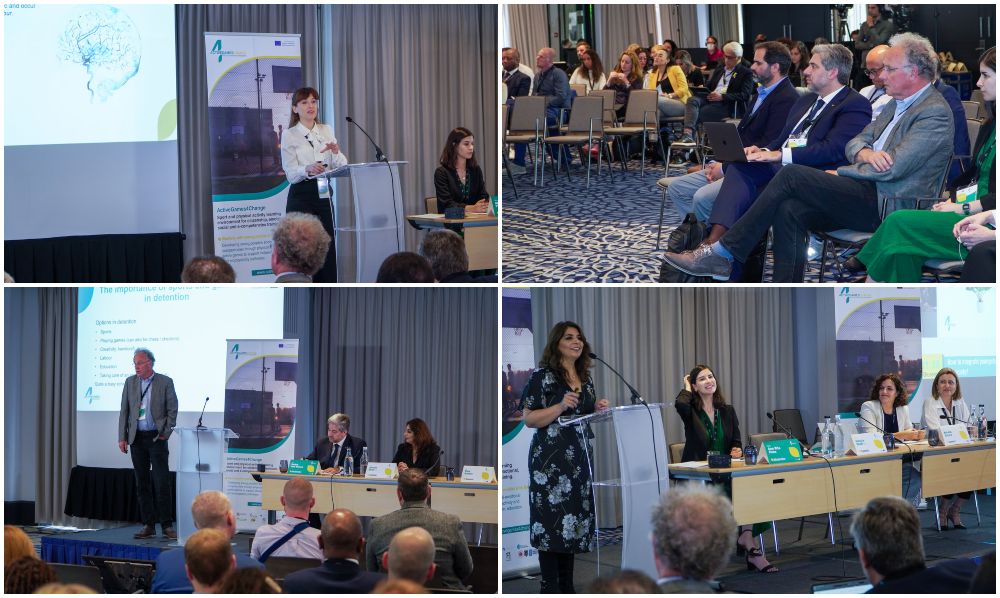
The presenting experts recognised that traditional education training is not always the best way to reach these young people. This insight is especially important when a significant number of them have been shown to have very low literacy levels or learning disabilities.
Participants were able to learn more about the advantages of using non-formal learning activities such as cooperative gaming and team-building activities with this population. Young offenders can benefit from the increased appeal of these teaching methods, when compared to traditional education, to develop these skills as part of their rehabilitation process.
The AG4C mobile App: A tool for practitioners and educators
The conference included the presentation of the mobile app developed by the project as a tool to showcase the games and activities the initiative promotes.
This mobile App was designed and developed with game instructions and ongoing game information. It also allows recording and displaying individual and team scores for a predefined evaluation grid.
The App will support the monitoring during outdoor activities by displaying the activity programme and keeping track of the overall progress. This is possible because the App records the progress of individual members and teams. This tool is available in English and all the project partner’s languages: Portuguese, Spanish, Italian, Romanian, Turkish, and Hungarian. All event participants received USB pen drives, which included the AG4C game cards and the app (for Android and iOS).
Recordings of all the event discussions are available on the project’s website, alongside short one-on-one interviews with key speakers and experts.
Know more about this project
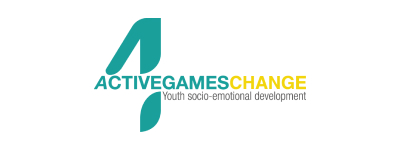
Active Games 4Change
Sport and physical activity learning environment for citizenship, emotional, social and e-competences training
For more information, visit the ActiveGames4Change website.
Related projects
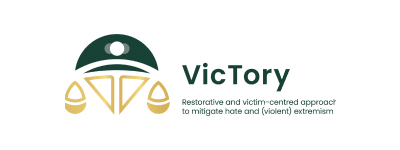
VicTory
Restorative and victim-centred approach to mitigate hate and (violent) extremism

REUNION
Rehabilitation of foreign inmates within the scope of FD 2008/909/JHA
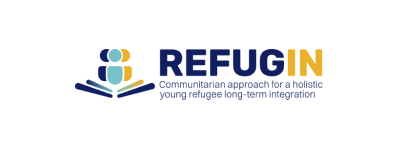
REFUGIN
Communitarian approach for a holistic young refugee long-term integration
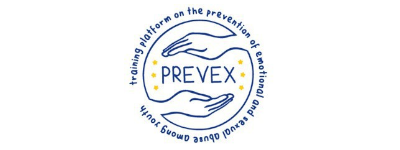
PREVEX
Preventing Emotional and Sexual Abuse Among Young People

MyComPass
Key Competencies for Minor Offender Reintegration
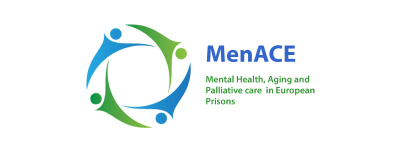
MENACE
Mental health, ageing and palliative care in European prisons
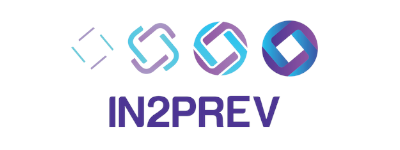
IN2PREV
Law enforcement and community cooperation and training approach to prevent radicalisation by ensuring refugees’ successful inclusion

FUTURE-ART
Sentinels of the Future: Together to Eradicate Human Trafficking

FRAME GANG
European Framework of Competences for Community Professionals in Gang Environments

EIGEP
European Interaction Guidelines for Education Professionals when working with Children in Juvenile Justice Contexts
Related news
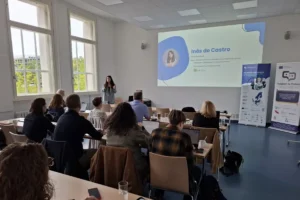
IPS showcases virtual reality solutions for skills development and stress management at Berlin workshop
Read More »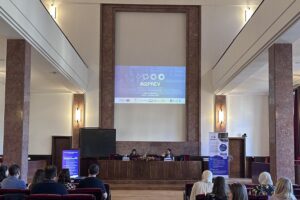
IN2PREV Final Conference highlights cross-sector collaboration for refugee inclusion and radicalisation prevention
Read More »
JUSTICE TRENDS Magazine Launches 14th Edition: Expanding the Frontiers of Rehabilitation Support
Read More »
Older women in prison: Exploring intersectional vulnerabilities and sharing insights with the scientific community
Read More »




